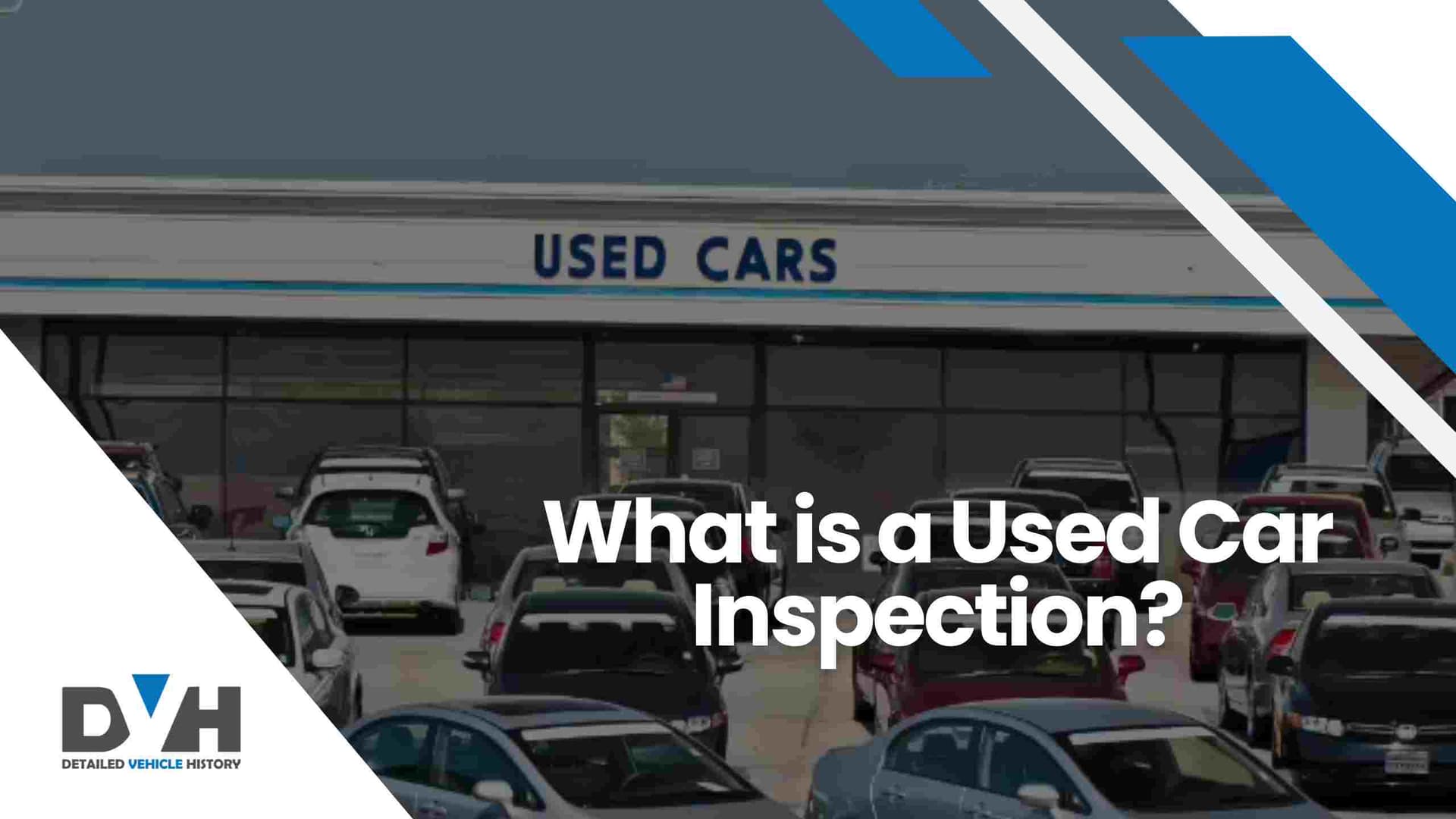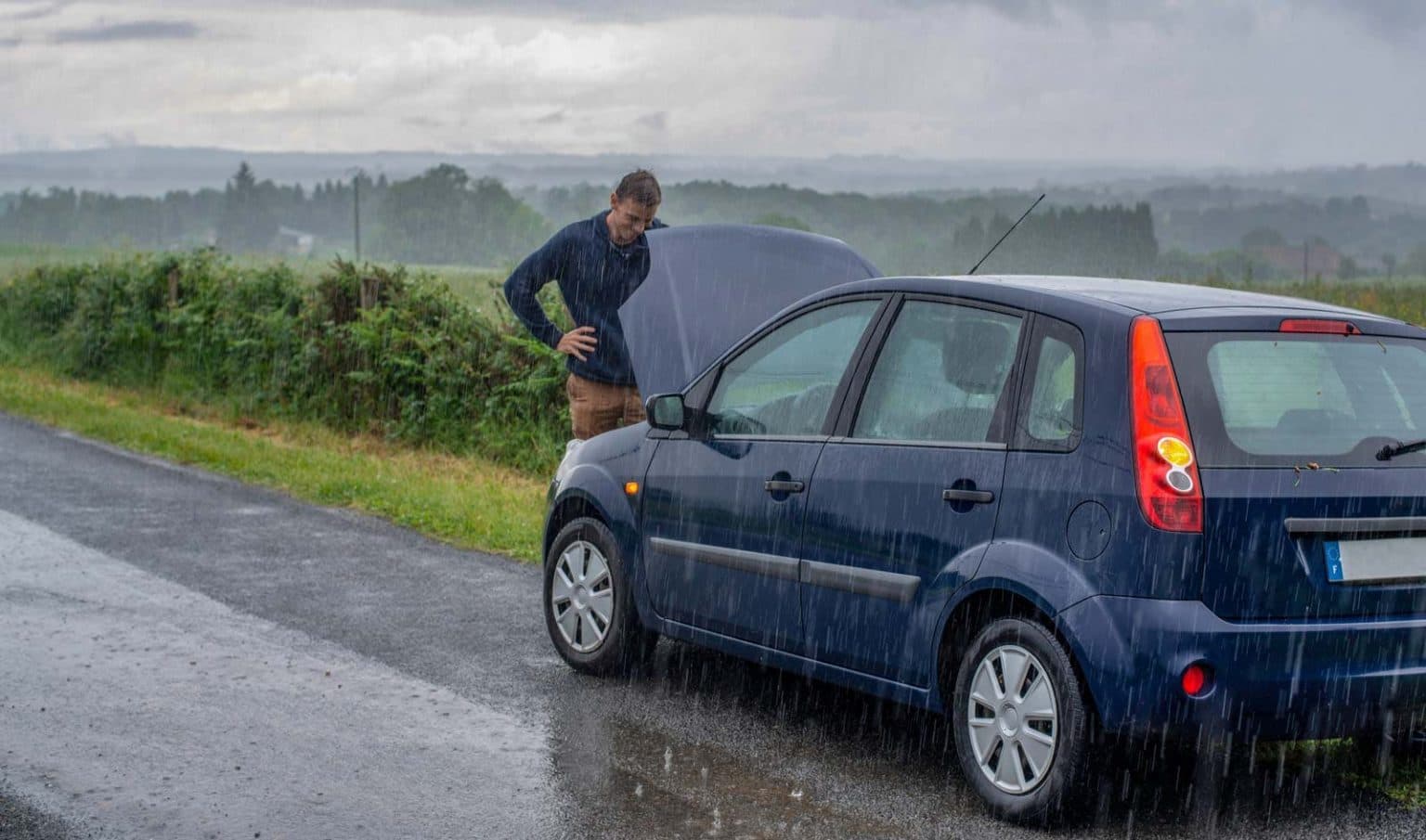- Used car inspection is also called the Pre-Purchase Inspection and is usually done by certified mechanics.
- 27 states made car inspections compulsory, including California, the District of Columbia, and Idaho
- You can perform a self-car check before purchasing a used car by getting a vehicle history report by VIN.
What is a Used Car Inspection?
What States Require Vehicle Inspections?
State | Inspection Requirements |
|---|---|
Arizona | Emissions inspections are required every two years in the Phoenix and Tucson metro areas. |
California | Emissions testing is required every two years for vehicles seven years or older in 41 of 58 counties. Out-of-state vehicles also need testing before registration. |
Colorado | Emissions inspections required every two years in 9 of 64 counties, with exemptions for vehicles up to seven model years old. |
Connecticut | Emissions inspections are required every two years. |
Delaware | Safety and emissions inspections are required every two years. |
District of Columbia | Emissions inspections are required every two years. |
Georgia | Annual emissions testing is required in the Atlanta metro area. |
Hawaii | Annual safety inspections are required for all vehicles. |
Idaho | Emissions inspections are required in specific areas such as Lake and Porter counties. |
Louisiana | Annual emissions testing is required in the Baton Rouge metro area. Brake tag inspections are required for New Orleans vehicles. |
Maine | Annual safety inspections are required statewide, plus emissions testing for vehicles registered in Cumberland County. |
Maryland | Biennial emissions inspections are required in 13 of 23 counties. |
Massachusetts | Annual safety and emissions inspections are required for all vehicles. |
Missouri | Biennial safety inspections are required statewide, with additional emissions testing every two years in the St. Louis metro area. |
Nevada | Annual emissions inspections are required in urban areas of Clark and Washoe counties, with some vehicle exemptions. |
New Hampshire | Annual safety inspections are required for all vehicles, plus annual emissions testing for vehicles less than 20 years old. |
New Jersey | Vehicles are exempt from inspection for the first five years, then must undergo emissions testing every two years. |
New Mexico | Biennial emissions testing is required for vehicles in Bernalillo County. |
North Carolina | Annual safety inspections are required statewide, plus emissions testing every year in 22 of 100 counties. |
Ohio | Emissions inspections follow an odd/even testing schedule for vehicles in the Cleveland metro area. |
Oregon | Emissions testing is required periodically in the Portland and Medford metro areas. |
Pennsylvania | Annual safety inspections are required statewide, with emissions inspections every year in 25 of 67 counties. |
Rhode Island | Safety and emissions inspections are required every two years. |
Texas | Annual safety inspections are required statewide, plus emissions testing every year in major urban areas. (Note: Non-commercial safety inspections will end in 2025.) |
Utah | Emissions testing is required periodically in the four most populous counties. |
Vermont | Annual safety and emissions inspections are required for all vehicles. |
Virginia | Annual safety inspections are required statewide, plus emissions testing every two years in urban areas of northern Virginia. |
West Virginia | Annual safety inspections are required statewide. |
Wisconsin | Biennial emissions testing is required in select counties. |
States Without Vehicle Inspection
State | Inspection |
|---|---|
Alabama | No regular inspections. Inspection is required only for rebuilt, salvaged, or transferred vehicles. |
Alaska | No regular inspections; only if the officer suspects the vehicle is unsafe or not equipped. |
Arkansas | No inspections unless law enforcement suspects safety defects. |
Florida | No safety or emissions inspections required. |
Georgia | No statewide inspections; some counties have local requirements. |
Idaho | No periodic safety inspections; only emissions in Ada and Canyon counties. |
Indiana | No statewide inspections; VIN checks for new-to-state vehicles only. |
Iowa | No safety or emissions inspections required. |
Kansas | No regular inspections; VIN inspection for out-of-state or reconstructed vehicles. |
Kentucky | No safety inspections; VIN/odometer verification only for out-of-state vehicles. |
Michigan | No inspections except for salvage vehicles or if police suspect unsafe conditions. |
Minnesota | No passenger car inspections; limited checks for commercial or salvage vehicles. |
Mississippi | No safety or emissions inspections required. |
Montana | No regular inspections unless VIN mismatch or the officer suspects an unsafe vehicle. |
Nebraska | No inspections; VIN check required for out-of-state vehicles before titling. |
New Mexico | No regular inspections; only emissions testing in Bernalillo County. |
North Dakota | No inspections required. |
Ohio | No periodic inspections; only at the time of registration. |
Oklahoma | No regular inspections; VIN check for first-time registrations. |
South Carolina | No regular inspections. |
South Dakota | No inspections for passenger cars; officers may inspect if unsafe. |
Tennessee | Only certain counties require emissions testing; most of the state has none. |
Washington | No inspections; program ended in 2020 (except for rare exceptions). |
Wyoming | No inspections; but a VIN check may be required for out-of-state registration. |
Car Inspection Laws by State
- Safety inspections check if a car is safe to drive. This includes things like brakes, tires, lights, and seatbelts.
- Emissions tests make sure a car's exhaust system meets air quality standards.
- Hawaii: An Annual safety inspection for all vehicles is required for all vehicles.
- California: Only needs an emissions (smog) test in some areas.
- New York: Safety and emission tests are required to be done every year.
How to Inspect a Used Car Before Buying
Pre-Inspection Checks
- Vehicle History Report
Use the VIN check and run a vehicle history report to see accidents, title problems (like salvage or flood), recalls, and past owners. - Service Records: Ask for maintenance or repair records. A well-documented service history shows the car has been cared for.
- Tires: Check for even tread wear. Be sure to run a Lincoln penny check to ensure the tires do not have much wear and tear.
Exterior & Body Inspection
- Glass: Check the windshield and windows for cracks or chips.
- Lights: Make sure all headlights, taillights, and turn signals work properly.
- Undercarriage: Look underneath the car for rust, damage, or any sign of leaking fluids.
Engine & Fluids
- Fluids: Check the oil, coolant, brake fluid, and power steering fluid. Fluids should be clean and at the right level.
- Engine Bay: Look for leaks, loose wires, or worn belts.
- Cold Start: Start the engine while it's cold and listen for strange noises like knocking or squealing.
Interior & Electronics
- Seats and Carpets: Check for stains, tears, or signs of water damage under the mats.
- Dashboard: Make sure warning lights appear briefly and then go off.
- Electronics: Test all functions, including air conditioning, heater, radio, power windows, wipers, and locks.
Test Drive
- Start-Up: Listen if the car made unusual noises.
- Driving: Notice if the car pulls to one side or vibrates.
- Braking: Test the brakes in a safe area. The car should stop smoothly without pulling.
- Transmission: Shift through all gears and check for smooth transitions.
Common Issues Found During Inspections
- Mechanical Problems: Mechanical problems can include engine troubles, worn-out brakes, suspension faults, or transmission slips..
- Electrical System Failures: Problems might come from old wires, loose or rusty connections, or damaged components such as the alternator, starter, or battery.
- Odometer Tampering: To check if the odometer was rolledback is easy; you just need to compare the last recorded mileage and the history of recorded mileage.
- Body and Frame Damage: The mechanic will check for uneven panel gaps, mismatched paint, or signs of welding, which can show that the car was in an accident.
- Emission Test: The mechanic will run out a test on the car's exhaust system to make sure it passes the required limits. If the car failed the emission test, it might not be bought.
- Hidden Problems: Inspections can help you see hidden issues such as rust underneath the car, leaks from the engine or transmission, or overdue maintenance.
Costs and Types of Used Car Inspection
Inspection Costs
Types of Inspections
What are the Benefits of Getting a Used Car Inspection?
- Make the Vehicle Reliable and Safe: A used car inspection helps a potential buyer a detailed look at how safe and reliable a car truly is. Just imagine if you accidentally bought a vehicle that has been in an accident and not properly fixed, it could lead to another dangerous accident.
- Check the Hidden Issues: Not every problem in a used car is easy to spot. An inspection helps you examine hidden areas like the engine, undercarriage, and transmission. It is better to find out if the car has hidden damage before you buy it.
- Helps to Negotiate Better: Having an inspection report can also give buyers a strong advantage when negotiating the price. For example, if small defects are found, buyers can ask the seller to fix them or lower the price.
- Prevents Future Unnecessary Expenses: While a used car inspection may seem like an extra cost at first, it can save much more in the long term. Regular inspections and preventive care also help extend the car's lifespan and keep it in good shape for years to come.


